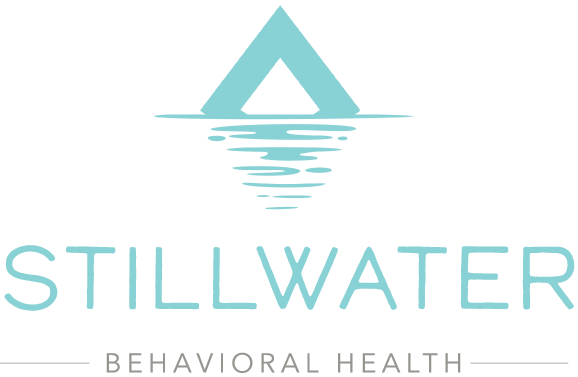Alcoholism Treatment & Rehab in Southern California
If you suffer from alcoholism, it’s important to understand the basics of the disorder. With that knowledge comes hope for recovery Alcoholism Treatment.
What Is Alcohol Addiction?
In the United States, about 14.5 million people twelve and older had an alcohol use disorder (AUD) diagnosis in 2019.1 Although alcoholism or AUD is a treatable condition, the negative stigma surrounding substance use disorders often deters people from seeking help. This article will answer your questions about alcohol abuse, signs of alcoholism, and alcoholism treatment.
Alcohol addiction or alcohol use disorder (AUD) is a medical condition that occurs when a person loses the ability to stop or limit their alcohol use even when their drinking results in negative consequences. For instance, if a person continues to drink after losing their job or being told their liver is suffering. Alcohol addiction is a severe brain disorder that requires medical alcoholism guide.2
Questions about addiction?
Call Us Now: 1-866-232-9103
Your call is confidential with no obligation required to speak with us.
Is Alcohol Addictive?
Yes, alcohol is very addictive and dangerous. For many, alcohol is a substance used to feel relief or numbness. People also continue drinking to the point of addiction to gain social acceptance.3
What Makes Alcohol Addictive?
During continued use, the brain begins to associate alcohol or other drugs with pleasure. Over time, the brain also adapts and begins requiring more alcohol to achieve the same result, which is called developing tolerance. 3
How Do You Know If You Are Addicted To Alcohol?
When determining if you are addicted to alcohol, there are many signs and symptoms to look for. In the following sections, we will highlight the main symptoms and signs of alcoholism.
Signs of Alcohol Abuse
A person abusing alcohol typically begins losing interest in hobbies, missing family obligations, performing poorly at work or school, and possibly encountering legal consequences. Someone who is using alcohol may also display signs of alcohol withdrawal. Withdrawal symptoms can include nausea, restlessness, irritability, sweating, tremors, hallucinations, and convulsions.4
Symptoms of Alcohol Addiction
Generally, a behavioral healthcare professional screens for alcohol addiction symptoms when assessing whether a person has AUD. Although an unlicensed individual cannot diagnose, it is helpful to understand the symptoms of alcohol addiction. Here are some of the common symptoms:
- Drinking more than initially intended
- Failed attempts to stop drinking or cut back
- Spending a significant amount of time drinking and recovering
- Alcohol use interferes with school, work, or home obligations
- Continued drinking despite disputes with friends or family
- Risky behavior while under the influence (driving, unprotected sex, crime, etc.)
- Drinking more over time to achieve the same result (tolerance)
- Symptoms of alcohol withdrawal (shakes, nausea, sweating, racing heart, etc.)
Diagnosis
When behavioral health professionals review symptoms, they use the Diagnostic and Statistical Manual of Mental Disorders (DSM-5) to assess whether the person meets the criteria for substance use disorder. If an individual meets the criteria for AUD, they can receive a mild, moderate, or severe diagnosis. Their level of severity depends on how many criteria they meet according to the DSM-5.
How Easily Can You Get Addicted To Alcohol?
It is relatively easy for a person to get addicted to alcohol. An individual’s risk of becoming addicted to alcohol depends on how much they drink, how frequently, and how quickly the alcohol is consumed. There are additional factors that increase a person’s risk of AUD as well.

How Much Is Too Much?
According to the Centers for Disease Control and Prevention (CDC), it is best not to consume alcohol. However, if a person is going to drink, they should drink in moderation. Moderation is considered two drinks or fewer per day for men and one drink or fewer for women.5
How Long Does It Take To Be Addicted To Alcohol?
There is no set timeline for a disease progression in terms of how long it takes to be addicted to alcohol. Although factors like drinking as an adolescent, genetics, mental health, trauma history, and binge drinking can increase the likelihood that a person will become addicted to alcohol, there is no one-size-fits-all addiction timeline.
What Is Alcoholism?
Alcoholism is a medical condition in the brain that is identified when a person can no longer control or stop drinking.
Alcohol Use Disorder vs. Alcoholism
Alcoholism is what some would consider to be the casual or everyday term for alcohol use disorder (AUD). In addition to these terms, people also refer to AUD as alcohol abuse, alcohol dependence, and alcohol addiction. Each of these terms is essentially interchangeable when discussing alcohol addiction help.
Stages of Alcoholism
According to the National Institute on Alcohol Abuse and Alcoholism (NIH), drinking levels or stages of alcoholism are split into three categories. Drinking in moderation, binge drinking, and heavy alcohol consumption are all different stages of alcoholism.6
Treatment for Alcohol Abuse
Counseling
Counseling and alcoholism treatments seek to help individuals change their behavior and beliefs about their alcohol use.7
Treating Underlying Problems
AA
Detox
When a person is seeking alcoholism treatment, in many cases, they will experience alcohol withdrawal. Alcohol withdrawal symptoms are severe and, in some cases, life-threatening. For this reason, many individuals require a medical detox to begin their alcoholism treatment journey safely. If you need alcohol addiction help, contact a local detox to discuss their protocols.7
Medication
In the United States, there are three medications approved by the Food and Drug Administration (FDA) to treat alcoholism. Although medication for alcoholism is not a cure, it can help with cravings and prevent someone from feeling pleasure or euphoria while drinking.7
Therapies
In alcoholism therapy, there are multiple behavioral treatments available. Current alcohol addiction statistics demonstrate the immense need for therapy and treatment of AUD. In the United States, approximately eighty-six percent of adults reported drinking alcohol during their life.
Behavioral Treatments for Alcohol Addiction

Self-Control
In the addiction field, self-control is sometimes called “white-knuckling it.” It is typically successful for short periods but doesn’t result in long-lasting sobriety. There is never a wrong time to ask for help and treatment.7
Counseling
Counseling is a beneficial tool for people struggling with AUD. During counseling, you can develop skills, build a sober support network, achieve your goals, and learn to cope with triggers.7
Therapy For Alcohol Addiction
In alcoholism therapy, there are multiple forms of treatment. The following section will briefly describe two main therapeutic approaches for alcohol addiction.
Cognitive-Behavioral Therapy
Motivational Enhancement Therapy
When to Seek Treatment for Alcoholism
If you or a loved one is struggling with alcohol addiction, it’s important to seek treatment as soon as possible. The decision to seek help can be difficult, but it’s crucial to remember that alcoholism is a progressive disease that can lead to serious physical and mental health problems. When alcohol consumption begins to interfere with daily life and responsibilities, such as work or relationships, it may be a sign of a non functioning alcoholic. Our alcohol rehab in Southern California can provide the necessary tools and support for individuals to overcome addiction and regain control of their lives. Seeking treatment is a brave and important step towards recovery and a healthier future.
Where Can I Get Help For Alcoholism?
At Stillwater Behavioral Health, we understand that alcoholism affects each individual differently, and that’s why we offer personalized treatment plans that address each person’s unique needs. Our alcohol treatment center provides a warm and welcoming environment where individuals can receive the care and support they need to overcome addiction. Our alcohol rehab in Santa Barbara includes a range of evidence-based therapies, such as individual and group counseling, cognitive-behavioral therapy, and trauma-focused therapy, all designed to help individuals identify and address the root causes of their addiction. Additionally, we offer comprehensive aftercare planning to ensure that individuals have the resources and support they need to maintain their sobriety once they leave our facility. What sets us apart from our competitors is our commitment to providing compassionate, individualized care that is tailored to each person’s unique needs. Our team of experienced clinicians and staff are dedicated to helping each individual achieve their goals and live a fulfilling life in recovery. If you or a loved one is struggling with alcoholism, call us at 1-877-578-9348 to learn more about how our programs can help you achieve lasting recovery.
Questions about addiction?
Call Us Now: 1-866-232-9103
Your call is confidential with no obligation required to speak with us.
What to Expect From Our Alcohol Treatment Center
At Stillwater Behavioral Health, we understand that alcoholism affects each individual differently, and that’s why we offer personalized treatment plans that address each person’s unique needs. Our alcohol treatment center provides a warm and welcoming environment where individuals can receive the care and support they need to overcome addiction. Our alcohol rehab in Santa Barbara includes a range of evidence-based therapies, such as individual and group counseling, cognitive-behavioral therapy, and trauma-focused therapy, all designed to help individuals identify and address the root causes of their addiction. Additionally, we offer comprehensive aftercare planning to ensure that individuals have the resources and support they need to maintain their sobriety once they leave our facility. What sets us apart from our competitors is our commitment to providing compassionate, individualized care that is tailored to each person’s unique needs. Our team of experienced clinicians and staff are dedicated to helping each individual achieve their goals and live a fulfilling life in recovery. If you or a loved one is struggling with alcoholism, call us at 1-877-578-9348 to learn more about how our programs can help you achieve lasting recovery.
Does Insurance Cover Alcohol Addiction Treatment
At our alcohol rehab in Southern California, we believe that everyone should have access to quality addiction treatment, regardless of their financial situation. That’s why we accept most major insurance plans to help cover the cost of alcohol addiction treatment. We also offer self-pay options and financing options to help make treatment more affordable and accessible. Our team is committed to working with each individual to find a payment plan that works best for them and their unique situation. To find out if your insurance plan covers alcohol addiction treatment at our facility, simply call us and we’ll be happy to help you navigate the insurance process and answer any questions you may have.
Does Insurance Cover Alcohol Addiction Treatment
At our alcohol rehab in Southern California, we believe that everyone should have access to quality addiction treatment, regardless of their financial situation. That’s why we accept most major insurance plans to help cover the cost of alcohol addiction treatment. We also offer self-pay options and financing options to help make treatment more affordable and accessible. Our team is committed to working with each individual to find a payment plan that works best for them and their unique situation. To find out if your insurance plan covers alcohol addiction treatment at our facility, simply call us and we’ll be happy to help you navigate the insurance process and answer any questions you may have.
Get Help for Alcoholism Today
Even with all of the available alcohol rehab centers in Southern California, alcohol addiction can be a difficult and overwhelming journey. But you don’t have to go through it alone. At Stillwater Behavioral Health, we offer comprehensive alcohol addiction treatment programs that are tailored to meet the unique needs of each individual. Our compassionate and experienced team is dedicated to helping you achieve lasting recovery and a fulfilling life beyond addiction. Whether you’re seeking help for yourself or a loved one, we encourage you to take the first step towards healing by calling us at 1-877-578-9348. Our team is available 24/7 to answer any questions you may have and help you start your journey towards recovery. Don’t wait any longer, call us today and take the first step towards a healthier and happier life.
FAQs About Alcoholism Treatment
At Stillwater Behavioral Health, we believe that the most effective treatment for alcoholism is a comprehensive, personalized approach that addresses each individual’s unique needs and circumstances. Our alcohol addiction treatment programs incorporate a range of evidence-based therapies, such as individual and group counseling, cognitive-behavioral therapy, and trauma-focused therapy, all of which have been shown to be effective in treating alcohol addiction. Additionally, our programs are designed to address co-occurring mental health disorders, which often accompany addiction, to ensure that each person receives the comprehensive care they need. We also offer aftercare planning to help individuals maintain their sobriety once they leave our facility.
The duration of alcoholism treatment can vary depending on the individual and the severity of their addiction. At Stillwater Behavioral Health, we offer both short-term and long-term treatment programs to meet the unique needs of each individual. Our short-term programs typically last between 30 and 90 days, while our long-term programs can last up to 6 months or longer. The length of treatment depends on a variety of factors, such as the individual’s level of addiction, their mental health status, and their personal goals for recovery. The experienced clinicians and staff at our detox in Santa Barbara work closely with each individual to create a personalized treatment plan that is tailored to their specific needs and circumstances.
Alcoholism is a chronic, relapsing disease that can be managed with treatment, but there is no known cure. However, with the right tools and support, individuals can achieve lasting recovery and lead fulfilling lives beyond addiction. At Stillwater Behavioral Health, we offer comprehensive alcoholism treatment programs that incorporate a range of evidence-based therapies and support services to help individuals overcome addiction and maintain their sobriety. Our programs are designed to address the physical, emotional, and psychological aspects of addiction, and to equip individuals with the skills and resources they need to manage their addiction long-term. While alcoholism cannot be cured, it can be successfully managed with ongoing support and care.
Alcoholism is a chronic, relapsing disease that can be managed with treatment, but there is no known cure. However, with the right tools and support, individuals can achieve lasting recovery and lead fulfilling lives beyond addiction. At Stillwater Behavioral Health, one of the best dual diagnosis treatment centers in California, we offer comprehensive alcoholism treatment programs that incorporate a range of evidence-based therapies and support services to help individuals overcome addiction and maintain their sobriety. Our programs are designed to address the physical, emotional, and psychological aspects of addiction, and to equip individuals with the skills and resources they need to manage their addiction long-term. While alcoholism cannot be cured, it can be successfully managed with ongoing support and care.
Resources
- https://www.niaaa.nih.gov/publications/brochures-and-fact-sheets/alcohol-facts-and-statistics
- https://www.niaaa.nih.gov/publications/brochures-and-fact-sheets/understanding-alcohol-use-disorder
- https://www.cdc.gov/stopoverdose/stigma/?s_cid=DOC_Stigma_PaidSearch_038
- https://www.apa.org/topics/substance-use-abuse-addiction/alcohol-disorders
- https://www.cdc.gov/alcohol/fact-sheets/moderate-drinking.htm
- https://www.niaaa.nih.gov/alcohol-health/overview-alcohol-consumption/moderate-binge-drinking
- https://www.niaaa.nih.gov/publications/brochures-and-fact-sheets/treatment-alcohol-problems-finding-and-getting-help








